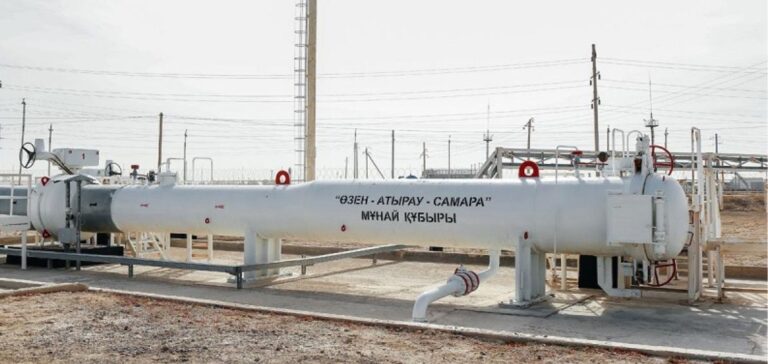The Kazakh Urals is finding favour with European refiners in the Mediterranean. Renamed KEBCO in June to distinguish itself from its Russian counterpart under sanctions, it trades at high premiums.
Kazakh Urals renamed
There was no distinction between Kazakh and Russian Ural crude before the Russian-Ukrainian conflict began. In fact, both crudes had the Ural appellation. However, Ural crude became increasingly difficult to sell in Europe due to the sanctions.
In response, Kazakhstan announced on June 7 a change of name for the crude oil it exports. The Russian network Transneft will export, from now on, the Kazakh Urals under the name of Kazakhstan Export Blend Crude Oil (KEBCO). Thus, the name change comes in a context of sanctions targeting Russian exports to Europe.
The weight of sanctions
On June 3, the European Union adopted the sixth set of measures sanctioning Russian oil exports to Europe. Brussels bans Russian crude oil exports by sea to Europe from December 5. However, the European Union makes an exception if the oil loaded in Russia comes from a third country.
Kazakh Ural comes from the Uzen land deposit near the Caspian Sea. Thus, Kazakhstan exports this production via the Uzen-Atyrau-Samara pipeline. Finally, in Samara, the Kazakh Urals joins the Transneft network and mixes with Russian crude.
Modest volumes
The majority of the crude oil is heading south to the Black Sea port of Novorosiisk. The rest is exported to the north, to the port of Ust-Luga opening on the Gulf of Finland and the Baltic. However, the total volumes for the Kazakh Urals are modest, amounting to about 200,000 b/d.
Kazakh Urals contrasts with Kazakhstan’s flagship export crude, CPC Blend, which has a relatively light sweet grade. Loaded at Novorosiisk, approximately 1.5 million bpd of CPC Blend transits through a dedicated pipeline from the Caspian Sea. However, this volume, which includes a Russian part, continues to trade freely as if it came from a third country.
Volumes destined for Europe
The Kazakh Urals accounts for approximately 13% of the Urals’ exports each month. The state-owned company KazMunaiGaz (KMG) is allocated a proportional share of the total Ural loading program. In addition, only Vitol and KMG sell KEBCO, making it a relatively small and new market.
There is no publication of the Ural loading programs since June. However, Kpler’s data reveals an export pattern that supplies KEBCO primarily to Europe at the expense of Asia. Thus, in the last three months, about 90% of the Kazakh Ural cargoes were exported to European refineries.
KMG supplies Europe with crude oil
In June, six cargoes, representing 156,000 b/d of Kazakh Urals, were exported to Europe, except for one cargo. In July, 256,000 b/d of KEBCO were exported and all but two of the shipments were going to Europe. Finally, in August, seven cargoes, representing 174,000 b/d of KEBCO, left for Europe.
In contrast, in the three months from March to June, approximately one third of KMG shipments were exported to Europe. In fact, the majority of them supplied China, India, Turkey and the United Arab Emirates. However, these shipments contained Russian Urals due to the lack of distinction in the market.
New buyers
The nine shipments of KMG’s Ural to Europe between March and May fed the Romanian refinery Petromidia. Thus, Petromidia, owned by KMG, and the Italian refinery Milazzo received the largest number of cargoes from the Kazakh Urals. In addition, the Italian Falconara and Spanish Petronor refineries have also been purchasing cargoes since June.
The new Mediterranean players on the KEBCO market are evidence of the change in attitude towards the Kazakh Urals. Indeed, European buyers previously shunned crude from Kazakhstan. Nevertheless, some traders consider it expensive, as it is the same price as a Russian cargo before the Russian-Ukrainian conflict.
A reconfiguration of the market
The disappearance of the Urals from European refineries led buyers to purchase softer grades. Thus, margins were soaring for distillates. However, eroded margins, declining demand and high prices were driving Mediterranean refiners to other options.
Currently, former Asian importers from the Urals are turning away from this quality. Indeed, demand is decreasing and freight costs are increasing. Thus, in this context, the possibilities of negotiation for this quality are diminishing.





















